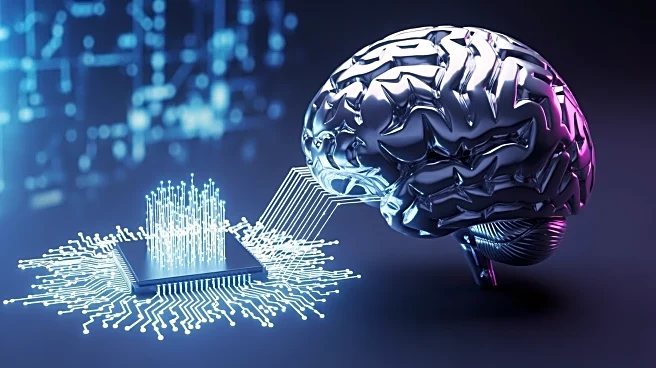What's Happening?
Dobromir Rahnev, a neuroscientist at Georgia Institute of Technology, discusses the theoretical concept of mind uploading, which involves transferring human consciousness into a computer. This idea, while
intriguing, faces significant scientific and technological challenges. Current brain mapping efforts are in their infancy, with only small portions of animal brains mapped. The complexity of the human brain, with its billions of neurons and trillions of connections, presents a formidable obstacle. Despite these challenges, Rahnev believes that advancements in computing power and artificial intelligence could eventually make mind uploading a reality, although it may take centuries.
Why It's Important?
Mind uploading, if achieved, could revolutionize human existence, offering potential immortality and new forms of digital life. This concept raises profound ethical and philosophical questions about identity, consciousness, and the nature of life. It could impact various sectors, including healthcare, technology, and even social structures, as individuals might choose to live digitally. The pursuit of mind uploading could drive significant investment in neuroscience and AI, accelerating technological advancements and potentially leading to breakthroughs in understanding the human brain.
What's Next?
The scientific community will continue to explore brain mapping and simulation technologies, with potential collaborations between neuroscientists and AI researchers. As interest in mind uploading grows, ethical guidelines and regulatory frameworks may be developed to address the implications of digital consciousness. Public discourse on the topic is likely to increase, with debates on the moral and societal impacts of such technology. Funding from private investors and tech companies could accelerate research efforts, bringing the concept closer to reality.
Beyond the Headlines
Mind uploading challenges traditional notions of life and death, prompting discussions on the value of digital existence versus biological life. The potential for digital immortality raises questions about resource allocation, societal inequality, and the preservation of human culture. Legal considerations, such as rights and responsibilities of digital entities, will need to be addressed. The cultural impact of mind uploading could lead to shifts in how humanity perceives consciousness and identity.









